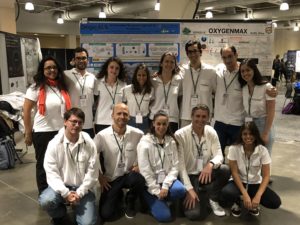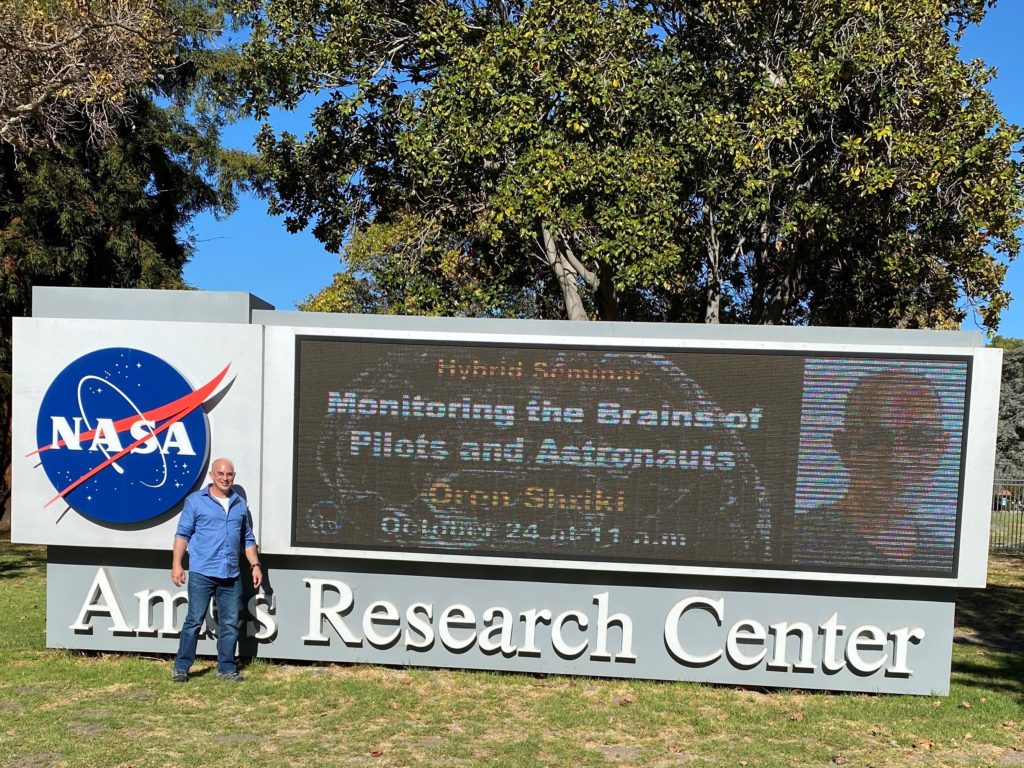
BGU Students Team Up to Slow the Progression of ALS
BGU Students Team Up to Slow the Progression of ALS
November 2, 2018
On October 26, Ben-Gurion University undergraduate students presented a new therapeutic approach for Amyotropic Lateral Sclerosis (ALS) at the 2018 international Genetically Engineered Competition (iGEM) in Boston, Massachusetts.
More than 350 teams from 41 different countries showcased projects using tools in the new field of synthetic biology to devise an innovative solution for a medical, environmental or social problem.
The BGU team, called OriginALS, supervised by Prof. Lital Alfonta and Dr. Ramon Birnbaum of the Department of Life Sciences, won a gold medal. Team members came together from chemistry, biotechnology engineering, medicine, and the life sciences.
For third-year biology student Liat Tsoran, the passion for ALS research hits close to home. Tsoran’s father, Nir, was diagnosed with the disease when she was just 11 years old, he has since passed away.

OriginALS team upper row left to right: Prof. Lital Alfonta, Sagi Angel, Mor Pasi (team leader), Liat Tsoran, Avital Bailen, Daniel Deitch, Einan Farhi, Mor Sela. Lower Row: Dror Aizik, Ori Tulchinsky, Nitzan Keidar, Dr. Ramon Birnbaum (team co-advisor), Eden Ozer.
“At that time no research on ALS was being done in Israel at all,” Tsoran says. “My dad created an organization to support patients and decided the cure should come from Israel. He gathered doctoral students and researchers and talked to them, convincing them to study ALS and the other nerve diseases.” When he died, two research labs had been established. Liat worked in one of them for three years.
At the iGEM competition, Tsoran and her team presented new findings that would ultimately lead to a new therapeutic approach to slow down the disease, prolong survival and enhance quality-of-life for patients. Currently, the estimated lifespan for ALS patients is two to three years.
Ordinarily, several types of cells nourish and support the motor neurons. In a healthy brain, one set of cells, the microglia, act as the central nervous system’s main immune defense. They scavenge for damaged neurons and plaques that accumulate to clog the system. A second set of cells, the astrocytes, play a role in repairing the nervous system and transmit messages among its cells.
“When the body is effected by ALS, the microglia cells start to over-secrete small molecules called cytokines that then turn astrocytes to reactive astrocytes, which start killing motor neurons,” says Tsoran.
To stop the progression of the disease, BGU’s OriginALS team used synthetic biology to eliminate reactive astrocytes. Then, they identified which astrocytes were reactive, without harming healthy astrocytes, using two specific gene markers expressed only in the “sick” form of the cells.
Killing toxic cells, while preventing the formation of new ones will significantly reduce sick neurons, increase healthy neuron survival and slow disease progression.
“Remarkably, our therapeutic approach might open a venue for treating not only ALS, but also other neurodegenerative diseases with similar mechanisms, such as Huntington’s, Alzheimer’s and Parkinson’s diseases and brain injuries,” says team member Avital Bailen, a native of Boston and a third-year student in BGU’s Department of Life Sciences.



